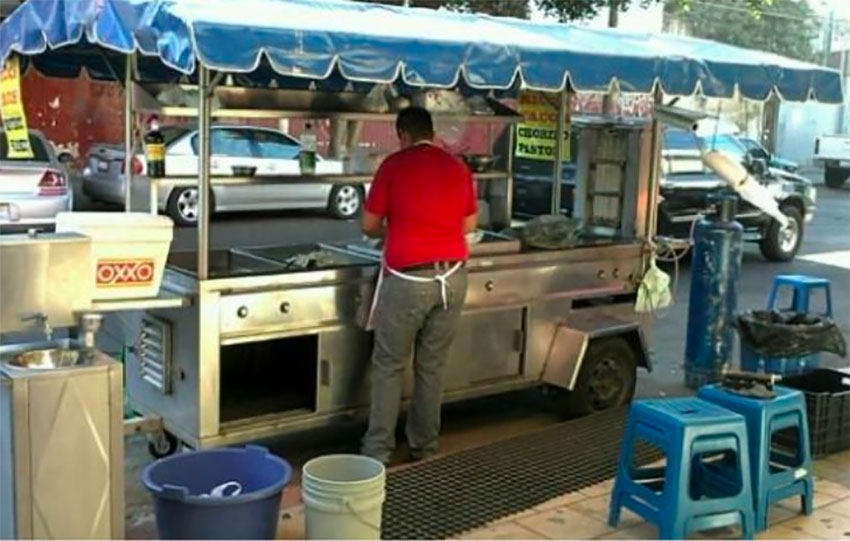While visitors are slowly starting to return, things are far from normal in Baja California Sur (BCS). The state’s Minister of Tourism, Luis Humberto Araiza, says that in Los Cabos the timeshare industry’s losses during the pandemic have amounted to US $150 million.
The destination is used to welcoming about 50,000 timeshare owners per month but there are currently around 15,000 timeshare owners in Los Cabos each month, Tribuna de Los Cabos reports.
However, at least now they have something to do. As of yesterday, 1,500 tour companies in the state were allowed to get back to business as providers of walking, diving, snorkeling, kayak and glass-bottom boat tours, among other activities, were allowed to reopen.
These businesses had been closed for four months, and in recent weeks had protested, demanding they be allowed to open.
Confinement has been rough everywhere, and BCS is no exception. Officials report that between March and July, more than 260 people filed for divorce in the state, with 157 in La Paz and 105 in Los Cabos.
Thirty-five people in Los Cabos have officially gone missing since the pandemic began, according to BCS Noticias.
Since late March, more than 6,000 people across the state have obtained free psychological help by phone.
Of those served, 3,800 reported symptoms of anxiety and depression, 1,160 were in violent situations, 1,000 called due to addiction issues and 90 needed support for grief, Health Minister Victor George Flores said.
As of Thursday, BCS had recorded 3,482 confirmed cases of the coronavirus and 124 deaths, including that of Los Cabos Police Chief Celso Filemón Lázaro Pérez earlier this week.
Street food sanctions
Blanca Pulido Medrano, head of the State Commission for the Protection of Sanitary Risks (Coepris), said her agency has conducted 1,399 inspections of food stands and sanctioned 102 for not following proper sanitary measures, reports BCS Noticias.

“Right now with the pandemic many people were left without a job and now it turns out that everybody and his brother has a food stand, but this is very delicate,” Pulido said, admitting that closing down businesses in a time of crisis does not make Coepris very popular. “I spoke with business representatives, with doctors of the municipalities, and you have to be careful because the issue of food handling is a component from a health point of view, and we must take care.”
Caught
Four men were arrested for drug possession in La Paz, Comondú, Los Cabos and Mulegé, BCS Noticias reported Wednesday when they were found in possession of a total of 1,643 doses of methamphetamine. In La Paz, a 22-year-old was caught with 925 doses, and a man in Guerrero Negro was found in possession of 250 doses. In Ciudad Insurgentes, a man named Guillermo had 125 doses of meth on him, and a man who goes by the nickname “El Tortas,” or “Sandwiches,” who was in possession of 125 doses of methamphetamine as well as 218 grams of marijuana, was arrested in San José del Cabo.
Finally caught
A man who had been on the run for 16 years after he was accused of murder in July 2004 was captured by the military this week in Hermosillo, Sonora. José Atalo had been on the state’s most-wanted list for years after he allegedly committed murder on the highway between Santa Rosalia and Guerrero Negro, El Sudcaliforniano reports.
Atalo, who is now 75, was apprehended in a joint effort by the military and authorities in BCS and Sonora. He is thought to have been a leader of a criminal gang operating in the northern part of the state at the time of the murder.
Not caught
Two thermal imaging cameras have been placed in San José del Cabo’s estuary in order to prevent vandalism, authorities say. For years the fresh-water lagoon has seen its sand bar break open, draining its water into the Gulf of California and shrinking the habitat for migratory birds.
Some think the estuary’s sand bar has been deliberately opened in order to harm the estuary and eventually dry it up so hotels can be built on its beachfront land, and the cameras are meant to be a deterrent. The estuary is an important part of the ecology of Los Cabos, and was one of the area’s first draws for foreign visitors when centuries ago cargo and pirate ships would stop to replenish their water supplies as they traveled the trade route between Mexico and the Philippines.
Save the snakes
After being closed for four months, the critters housed at the El Serpentario de La Paz are getting hungry. The wildlife rescue and rehabilitation center, which has been around for 20 years, is home to 600 snakes, lizards, birds and other animals, including abandoned exotic pets.

Normally open to school groups and other visitors, the non-profit center, which is run by volunteers, relies on ticket sales to feed their animals, which eat vegetables, fruit and chicken. Serpentarium workers are asking for community support to keep the animals they have rescued alive and in good condition.
Mexico News Daily
